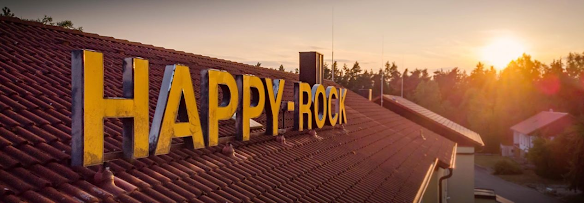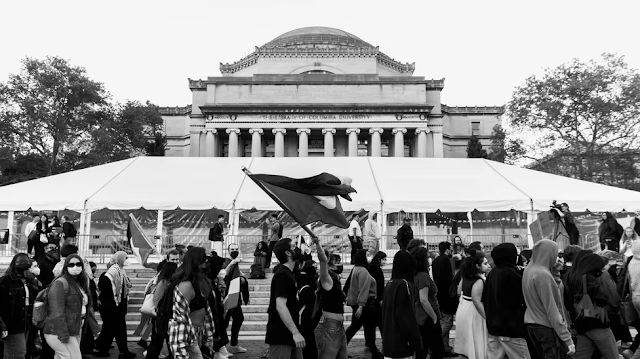In a week of tumultuous events on American college campuses, the landscape of campus politics underwent a seismic shift, reshaping the discourse around the Israeli-Palestinian conflict. Student groups, which have long championed the just cause of Palestinian justice, endorsed a profoundly troubling means to that end: war crimes.
Last Saturday, a disturbing scene unfolded as hundreds of armed individuals launched a coordinated assault on Israel, deploying land, air, and sea routes with the explicit aim of causing maximum harm to Jewish civilians. The result was a harrowing pogrom, eerily reminiscent of historical atrocities committed by Cossacks and Nazis. Civilians were mercilessly slain in their own homes, with families as helpless witnesses, while young people were brutally massacred at a music festival. Children were abducted, their innocence and futures robbed.
Amid this horrifying act, the response from millions of Americans, representing a spectrum of views on the Israel-Palestine conflict, was one of unequivocal condemnation. The deliberate targeting and killing of civilians and the abduction of children are universally abhorred acts, transcending political divides and cultural boundaries.
It was a shock, then, to witness the reactions of certain student organizations on numerous campuses in the wake of these heinous attacks. Instead of unequivocal condemnation, they sought to absolve the perpetrators of their grave responsibilities.
At Harvard, a joint letter signed by multiple student organizations held the Israeli government solely responsible for the ongoing violence, a stance that has since been disavowed by some of the signatories. Meanwhile, at the University of Virginia, the Students for Justice in Palestine chapter voiced explicit support for Palestinian liberation and the right to resist occupation by any means necessary. It is a disturbing response, especially considering the recent actions by Hamas, which has demonstrated a willingness to employ murder, including the targeting of civilians and children.
The Students for Justice in Palestine chapter at George Washington University went further, rejecting the Geneva Conventions' principles protecting noncombatants and blurring the lines between "civilian" and "militant." This stance disregards the fundamental principles of international law designed to protect innocent lives during times of conflict.
Similarly, at a liberal arts college near Philadelphia, Swarthmore Students for Justice in Palestine called on the community to unite in solidarity with the oppressed and challenged perceived biases against indigenous people's resistance. However, they failed to recognize that most people regard the murder of civilians and the abduction of children as barbaric and uncivilized, regardless of the perpetrators' identity.
While it is understandable that advocates for the Palestinian cause may have various reasons to remain silent or prioritize other concerns, endorsing, validating, or standing in solidarity with war crimes is morally indefensible. It is disheartening that numerous student organizations took such a stance, creating a stark division not only with conservative counterparts but also with left-leaning liberals and progressives.
The heart of the issue lies in the endorsement of actions that are diametrically opposed to the principles that underpin the left's foundational values, such as secularism, universalism, and egalitarianism. These values are crucial for achieving Palestinian liberation, and the actions of Hamas have set back the progressive vision for a one-state solution, reinforcing the belief that it may lead to ceaseless civil conflict.
It is imperative to acknowledge the wrongfulness of targeting civilians and children, regardless of the specific circumstances. Endorsing such actions, as some partisans of Israel have done in the past, undermines moral integrity. Collective responsibility should not be assigned to any group, as collective punishment is never just.
The troubling embrace of Hamas's actions poses a political disaster for the broader coalition of left-leaning activist organizations that have shaped social justice on college campuses. Until now, the more radical elements of the left exerted influence due to the perception that their hearts were in the right place, despite their utopian aspirations. However, endorsing what Hamas perpetrated challenges the solidarity that prevailed despite differences in views.
This episode will undoubtedly influence ongoing debates about free speech, cancel culture, and the relationship between college administrators and the events they are pressured to address. While even the most repugnant statements from student organizations deserve First Amendment protection, the shifting landscape of cancel culture might lead some to change their views. The leftists who long argued against hate speech being free speech may find themselves in a difficult position.
As the contours of cancel culture evolve in response to statements by student organizations, there may be a shift in perception. Some students and future employers could become less tolerant of radical political statements made during college, which may impact career prospects. This shift may extend beyond the right-wing realm, as progressive students realize that excessive radicalism can lead to consequences. Will Jews have a safe space on American Campuses?
College administrators are also faced with new challenges, as they are pressured to address the actions of student groups that endorse violent extremism. The traditional approach, as outlined in the Kalven Report of 1967, advocated for universities to refrain from taking collective positions on political issues, allowing scholars to explore them freely. This approach may make a comeback as administrators grapple with the difficulties of issuing statements on contentious events.
In the midst of these shifts, it remains unclear whether these changes will lead to a better or worse outcome for campus politics. As with any major transformation, there will be significant consequences, and observers will be watching closely to see how these developments play out.


Comments